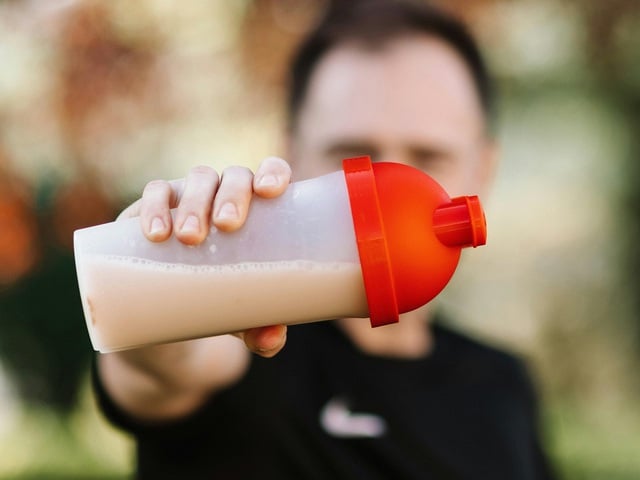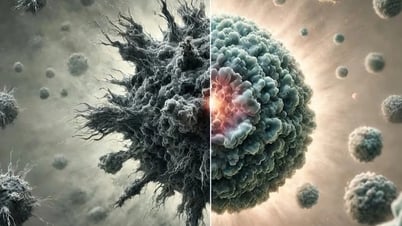Protein is an essential macronutrient that plays an important role in muscle growth, tissue repair, enzyme and hormone synthesis, and overall health. A protein-rich breakfast can help stabilize blood sugar, keep you full longer, and reduce cravings throughout the day, according to the health website Healthline (USA).

Protein-fortified milk, although rich in protein, cannot completely replace natural protein-rich foods such as meat, eggs or milk.
Photo: PEXELS
For those who exercise regularly, protein is especially important for muscle recovery and development. Protein supplements are a simple and effective way to supplement protein every day. We can add the powder to water and shake it well or mix it with smoothies, sprinkle it on oatmeal, or eat it with some types of cakes.
Some studies have shown that drinking protein shakes at breakfast is safe and beneficial, especially for people who are lacking protein in their daily diet. However, it is important to choose the right type of protein shake and pay attention to your overall diet throughout the day.
It is also important to note that protein shakes cannot completely replace natural protein-rich foods such as meat, eggs, milk, shrimp or beans. These foods should still play an important role in the diet and protein shakes should be used as a supplementary source of nutrition.
When choosing protein supplements, people should prioritize whey protein and plant-based protein. Whey protein is a type of protein derived from cow's milk. This is one of the most popular and widely used types of protein. The body will absorb whey protein faster, so it is very beneficial for muscle development. If you want to reduce your body fat percentage, choose a type with a higher protein content, less carbohydrates and less fat.
There are many types of plant proteins, made from peas, soy, hemp... These proteins tend to contain more fiber and less fat than animal-based proteins. This type of supplement is suitable for vegetarians, according to Healthline .
Source: https://thanhnien.vn/co-nen-uong-sua-protein-vao-buoi-sang-185240907013417626.htm






























































































Comment (0)